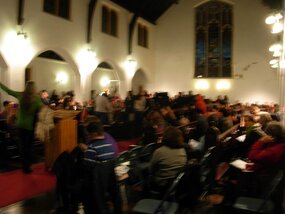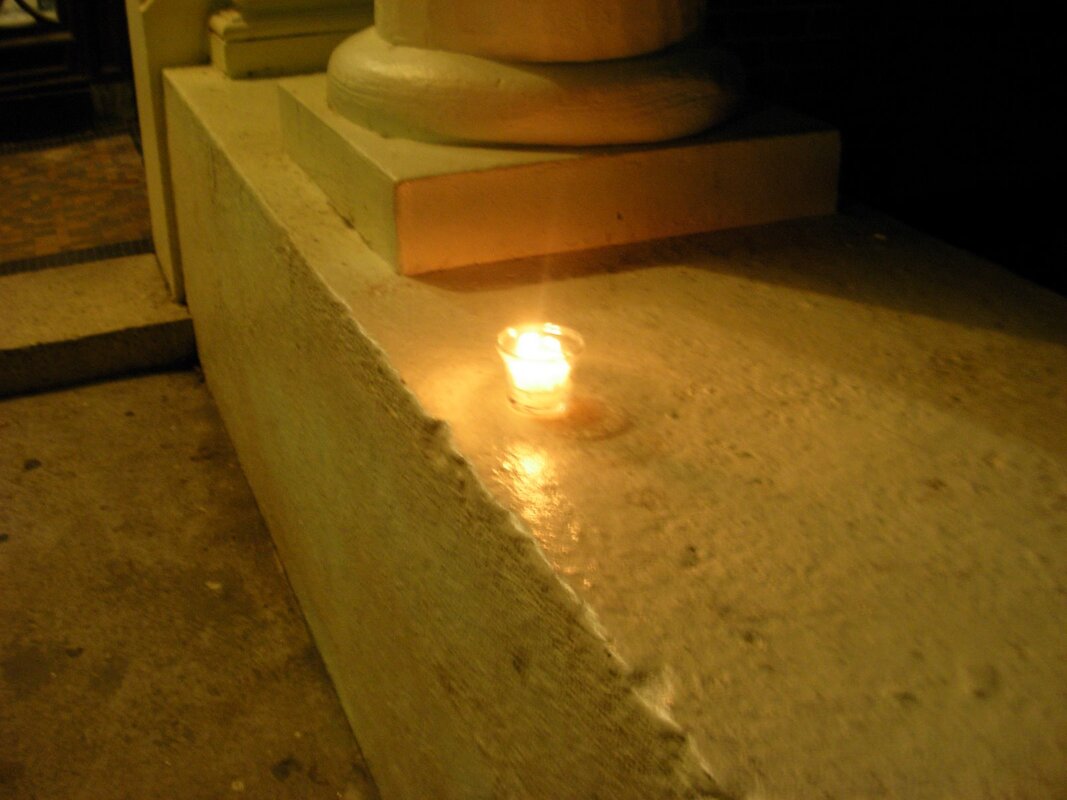We thank The Right Reverend Kathryn Ryan, Suffragan Bishop of the Diocese of Texas, who wrote on her blog this past Friday about anti trans legislation pending in Texas. “Week after week this spring, trans youth and their parents and other members of the trans community have had their dignity attacked as state lawmakers and others have debated their humanity and rights publicly as if they are not real people and faithful families with their own stories,” she wrote. In the testimony of trans community members and allies, Bishop Ryan observed, “I heard the core of Jesus’ message: All people are loved by God. Full stop. All are made in God’s image and are worthy of the protections and opportunities afforded by our state and country. The Episcopal Church affirms this claim when it calls upon the baptized to ‘respect the dignity and freedom of every human being’ and to ‘seek and serve Christ in all people, loving [their] neighbor as [themselves].’
We thank the Reverend Tommy Dillon, Rector of St. Margaret’s Episcopal Church in Baton Rouge, who shared testimony opposing HB 542 last Tuesday. “As part of the leadership of Inclusive Louisiana, the LGBT Ministry in the Episcopal Diocese of Louisiana, and as a priest of the Church, I am here to speak to oppose House Bill 542 because it would harm trans young people across the state,” he said. “We have several congregation members where I serve as a priest here in Baton Rouge who have children and grandchildren who are transgender, and they have expressed concern about this legislation with me. We believe that as part of our Baptismal Covenant we should respect the dignity of all of God's children.” Read more about the hearing in this article from The Advocate.
In his testimony, the Rev’d Dilon also referenced a story from the book of Acts about an Ethiopian eunuch, who is the first person baptized into the body of Christ in Acts (Acts 8:26-40). The story occurs along the “wilderness road” running from Jerusalem to Gaza. The Apostle Philip meets the Ethopian Eunuch whom we are told is a “a court official of the Candace, queen of the Ehiopians” (Acts 8:27). The Ethiopian eunuch would have been seen as an outsider, and occupied a marginal status based in what today we refer to as their gender and sexuality. What struck the Rev’d Dillon was the role of the Apostle Philip. During their conversation, the eunuch declares, “Look, here is water! What is to prevent me from being baptized?” In fact, nothing was to prevent the full, flourishing membership of this child of God in the beloved community. Philip, prompted by the Spirit, made sure of that. The Rev’d Dillon concluded his testimony: “I invite you to have a spirit-filled conversation with our trans siblings like Philip did two thousand years ago and see if the Spirit of God will move you to help break down barriers to help do no harm to God's beloved trans community.”
Indeed, that is the question: What is to prevent us from supporting the full flourishing of trans and nonbinary young people in our communities? Plenty of things can, especially when motivated by fear and hatred. These bills across the country purport to support the equality of women and girls. Their supporters often say they seek merely to “create a level playing field” for girls. But as this article importantly points out, these bills assume that bodies assigned male at birth “are born with an innate biological athletic superiority”— an assumption both androcentric and false. In addition, the article continues, these bills are being supported with “messaging that classifies young trans girls as ‘biological boys,’” messaging that “is scare-mongering and unfair, and only seeks to reinforce ugly stereotypes about trans girls and women to an uninformed public.” However vocally their supporters claim such legislation to be about “fairness,” in fact these bills are yet another effort in a longstanding pattern of stigmatizing and dehumanizing trans women.
What is to prevent us? What is to prevent us from standing together in full, loving support of trans women and girls, trans femme nonbinary youth, and indeed people of all genders, races, and ages in our communities? What is to prevent us from manifesting together the liberating love of the God who came among us to heal us and set us free?



 RSS Feed
RSS Feed